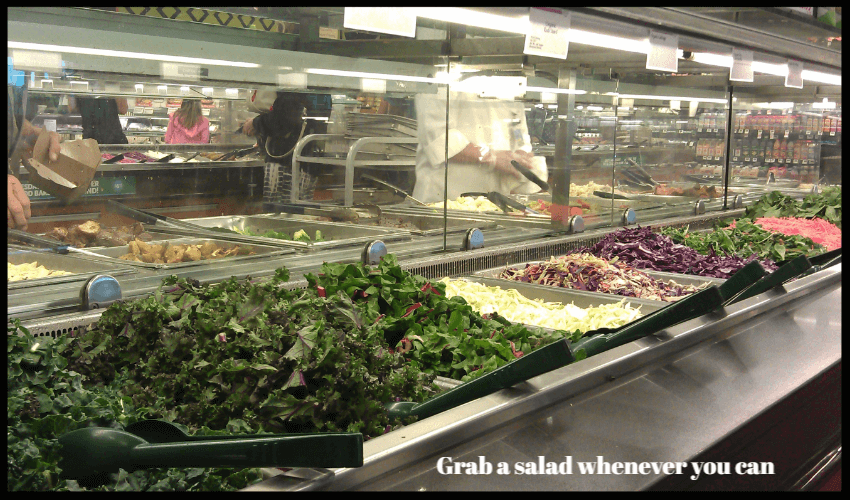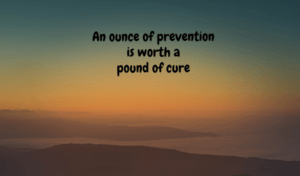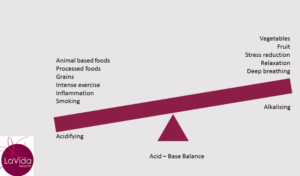Holidays are one of life’s great pleasures and absolutely essential for your health. They are an opportunity to rest and rejuvenate, to stimulate your senses with new sights, sounds, smells and flavours. They are a change of routine and a much-needed opportunity to spend some essential time outdoors. A good holiday is great for reducing stress hormones and creating new neural pathways in your brain.
Holidays should be beneficial for your mental health and nervous system.
I will often prescribe a holiday (even if it’s just a weekend away or a day trip) as an important part of a healthy lifestyle. However, it is possible that holidays can see your best-laid health plans unravel somewhat.
Unless you are staying somewhere that has cooking facilities you are likely to be eating out quite a bit. That’s part of the fun of a holiday in my opinion but it may mean your healthy diet can suffer. And maybe the alcohol intake creeps up too. Perhaps you are more active on holidays than when you are at home which could be a good thing. Or maybe your normal exercise routine slips a little when you are away.
Maybe the changes in your normal diet and routine have a negative effect on your digestion or sleep. Or perhaps being in a more relaxed state, away from work and other home pressures results in improved digestion or better sleep.
Question: Does travel have a positive or a negative effect on your health?
With a little bit of planning, you don’t have to come home kilos heavier and feeling sluggish or unwell. It just takes some forethought to be prepared for what you might experience.
Nine steps to being a healthy traveller
Try to keep a similar exercise routine to your usual routine
If you are active at home, think about what you will do while you are away. Do you need to take any specific gear to enable you to keep up your routine? If you are used to being active, plan to keep up similar types of activity. At home, I do a mix of cardio and weight-bearing exercise. When I travel I generally do lots of walking (good walking shoes required) but if I’m not careful I will miss out on the weight-bearing activities. To avoid losing that all-important muscle make the most of the hotel gym or have a simple in-room exercise program that will keep things in check. Perhaps you can suss out a local yoga class.
Don’t forget to incorporate some stretches (for those tight leg muscles that you may not have used for a while).
What if you aren’t normally very active? Think about your likely activity levels while you are away. Will you be swimming or doing lots of hiking, for example? Do you need to get in some fitness preparation before you go so that you don’t fall in a heap after day one?
If you can, organise your own breakfasts
Being able to start the day with a healthy, nutritious breakfast can make a huge difference to your energy levels. It will also help you to resist temptation either at the breakfast buffet or later in the day. It’s pretty easy to get together some fruit, yoghurt and muesli or even to whip up a chia seed pudding. If you have kitchen facilities then your options are even broader.
Ask a local where the nearest market or supermarket are and stock up on healthy snacks and breakfast options.
A bit of self-catering can really help you keep your eating plan (and budget) on track.
Choose salads or soups whenever you can
Eating out is often a necessity and one of the absolute joys of travelling to new destinations.
However, it can be a real trap and you can find yourself missing out on all-important vegetables (fibre) or overdoing the calories in fat or sugar-laden meals. To avoid this, try to order soups or salads whenever possible. Aim to do this for at least one meal a day. (If you are somewhere hot and you are concerned about illness go for the stir-fries instead of the salad).
Tip: Avoid the bread, get any dressings or sauces on the side and you’ll be many steps ahead of the game.
Don’t over-order
If you are like me and you love your food, it is easy to fall into the trap of ordering too much because it all sounds so interesting. So, order small serves, knowing that you can always order something extra if you really need it. Maybe even start by choosing your vegetables/salad and then decide if you need something else in addition.
In the same vein, ask for smaller serves. (Particularly important in some places where portion sizes seem to be huge). Many restaurants will be happy to oblige. While it might seem better value to get the bigger serves, it is a false economy in the long run.
If you are lucky enough to be able to share with someone then do so.
Do your research
It is not easy to stick to a healthy eating plan when you are travelling. Temptation is everywhere and the healthier options are often “hidden away” and require more effort to find. This is especially true when you are in unfamiliar territory or tired and hungry at the end of a long day of sightseeing.
Make use of one of the many apps/websites available these days to find places offering healthier food. (Happy Cow is just one that comes to mind). You can find some fabulous places just by doing a little homework. I will concede that these places might cost you a bit more than the burger or pizza joint on the corner but I don’t believe it is worth compromising your health just because you are on holiday (within reason).
Carry nuts, seeds or a protein bar for emergency snacks
There’s nothing worse than feeling the hunger pangs when you are in the middle of nowhere or the only option is the fast-food vendor. So it’s always a good idea to have a few healthy snacks in your bag for emergencies. If you do this you’ll be better able to resist temptation and you’ll avoid those hunger pangs that see you reaching for the (inevitably sugar or fat-filled) quick snack. This is especially handy on those days when you will be travelling and your choices would otherwise be limited to “airport food” or “service station food” or the lonely sausage roll in a food warmer somewhere.
Leave the guilt at home
Even though I will try to follow the above tips, sometimes the “path of least resistance” is the best option in the circumstances. So cut yourself some slack and don’t let that spoil the holiday. In my opinion, it is part of the holiday experience to have an ice cream at the beach, a gelato in Italy, a hot chocolate at the snow or fish and chips watching a sunset. Just don’t overdo it. If you’ve followed the tips above you can indulge occasionally without guilt.
Before you go away check your weight and measurements
Knowledge is power as they say. If you know you are someone who is prone to weight gain when you travel, taking this step might just make you a little more aware of your food choices and a bit more motivated to put on your walking shoes. You can then recheck when you get home or if you really want, you can toss that tape measure in your suitcase.
Before I go away I check my body composition (weight, muscle and fat distribution) and check it again on my return.
Don’t forget to pack a travel health kit
Pack a travel health kit according to your needs and where you will be spending most of your time. This might include some magnesium or herbs for sleep or tired muscles, a good quality Echinacea to boost your immunity, and treatments to keep you regular or prevent travellers’ diarrhoea. Maybe something for your liver (if you do over-indulge) would be a good idea.
When my clients travel, sometimes we will review their current supplements. Liquids and powders can be a nuisance when you travel so we might pare back to the real essentials while they are away. If you need help putting together a travel kit to suit your needs, let me know! I can help.
Perfect planning…
So, if you share whenever possible, go for smaller sizes, opt for salad (dressing on the side) instead of fries, avoid the “extras”, go for fish or lean meat options and do a bit of self-catering you can limit any “damage”. (It also helps if you boost your incidental exercise by taking the stairs, walking everywhere and climbing to the top of lookouts!)
With a bit of planning, the only thing that might come back heavier is your luggage!
Of course, this isn’t meant to be a complete list. There are lots of other things you can do. Some people need to go to great lengths to ensure their health isn’t compromised while they are travelling. However, follow these tips and you’ll have a great holiday and be well on the way to avoiding post-holiday health issues.






2 thoughts on “How to have a healthy holiday and avoid gaining weight”
On holidays we tend move so little and spend most of our time on the couch. I say one way to avoid gaining weight during holiday is to move around as much as you can. We all want to eat unhealthy foods during holiday but try to keep it to a limit and try to eat healthy food more.
Thanks for your thoughts. Sounds like you agree that maintaining your activity levels and making healthy choices when you can (with a bit of planning) can help to limit the “damage”.